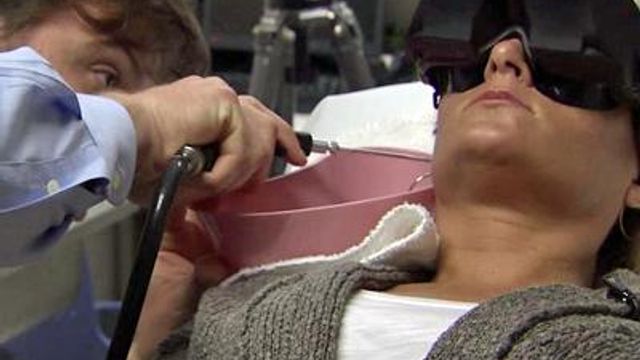Duke Balance Lab helps diagnose causes of vertigo
State of the art equipment in the lab tests the brain's balance system using a combination of information from the eyes, the muscles and the inner ear.
Posted — Updated“It got so bad, so dizzy that I couldn't really function. I couldn't drive,” she said.
Long hallways and grocery stores were a problem for her.
“I think I live with a kind of level of nausea,” she said.
Different doctors had different conclusions.
“There are a lot of patients that spend a long time – years – with balance problems who go untreated or undiagnosed,” said Dr. David Kaylie, an otolaryngologist at Duke University Medical Center.
Sepanek finally found answers at Duke’s Balance Lab.
State of the art equipment in the lab tests the brain's balance system using a combination of information from the eyes, the muscles and the inner ear.
Irrigating the inner ear with warm water causes fluids of the inner ear to move, which stimulates the inner ear and makes the eyes move, Kaylie said. The test helps doctors know if vestibular nerves of the ear are damaged.
A rotating chair in a dark booth measures how well the eyes move in the equal and opposite direction. At the same time, the subject is challenged with thinking different names.
“The whole process is exhausting. It's fatiguing to the brain,” Sepanek said.
“The weaker ear, the ear that responds least, is the damaged ear,” Kalylie said.
Doctors found the vestibular nerves in Sepanek's ear were damaged.
Her treatment is therapy – different exercises to retrain the brain to rely solely on the nerves of the healthy ear.
So far, she said it’s helped her return to work and most normal activity.
Doctors said the most common cause of vertigo is benign positional vertigo, which 20 percent of people get at some point in their lives.
The symptoms either resolve on their own over time or there are simple treatments that can help.
• Credits
Copyright 2024 by Capitol Broadcasting Company. All rights reserved. This material may not be published, broadcast, rewritten or redistributed.





